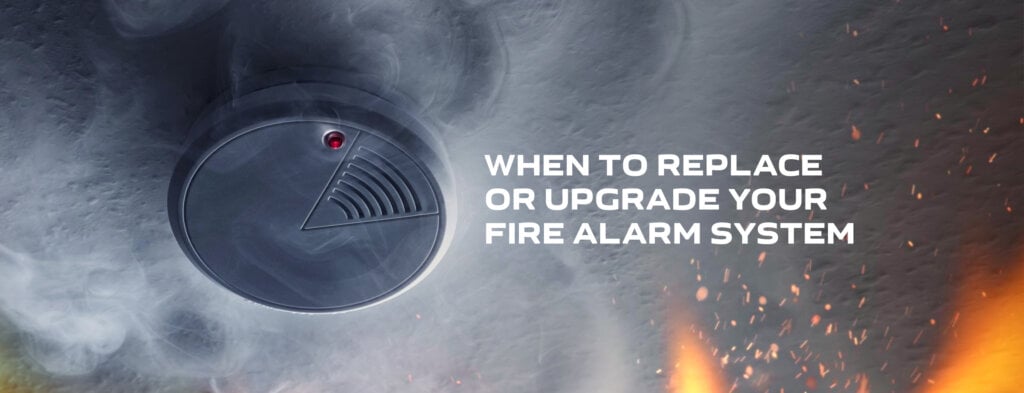
Depending on the type of system and the level of maintenance it receives, a fire alarm system will last for approximately 10 to 15 years. However, neglecting it may cause your system to become faulty and inefficient much sooner than the standard 10 years. Likewise, if your building has modernized or expanded, you may face further complications. For example, you may no longer be code-compliant with current fire safety standards for the current layout of your building. Ideally, you should replace your fire alarm system every 10 years or earlier.
To ensure compliance and the protection of your property, we always recommend that you conduct regular inspections and maintenance quarterly or every six months. In addition, you should also test your detectors at least once per month. You may perform this using a manual test or a smoke detector tester like the SDi SOLO A10. Eliminate the possibility for catastrophic loss of life and assets by validating that your fire protection system works properly regularly.
Replace or repair detectors when they become contaminated with dust, cobwebs, and other impurities over time. As a result, fire detection might gradually become oversensitive, which can lead to false alarms. Conversely, the opposite problem may occur, where detection sensors wear out and can no longer properly detect fire or smoke. What’s more, many people don’t realize fire detectors also have an expiration date. Due to the wear and tear on batteries and sensors, you should replace fire detectors at least every 10 years. For carbon monoxide detectors, we recommend replacement after 7 years.
Similarly, if your system is at the end of its lifespan, or no longer functional, it will need replacement. If you have an old system, it is a good idea to conduct a feasibility study of your current system. Ask your current contractor, fire alarm suppliers, or hire a consultant to perform this task. Often, you can repurpose or extend some components of your fire alarm system.
Although, If you wait until your system is down to replace it, then you may run into additional unforeseen costs. Specifically, an unplanned fire alarm installation will even more costly, lengthy, and disruptive for normal operations than a planned one. Additionally, not having a functional fire alarm system can put you out of compliance and at risk for being fined. If this occurs, you must hire fire watch or use a temporary fire alarm system in the meantime. These temporary measures will massively increase expenses, which will compound the longer your system is out of service.

In the event that a fire alarm system has been installed for under a decade, and there’s a decision to extend the building or install more devices, expanding the current system might be an option. Your decision will depend on the expansion capacity and wiring requirements of your current system. In addition, the age of your system should also heavily factor into your final choice. However, projects that involve reusing existing components often end up costing as much as or more than replacing the entire system with new equipment, devices, and wiring. Once the manufacturer stops supporting a product, maintenance and obtaining replacement parts become pricier and harder to find. Furthermore, if you have new code standards to adhere to, your current wiring may not be suitable for your new devices. Get help from a reliable contractor or consultant to estimate wiring costs, device requirements, and device load before expanding.
The additional benefits you receive from a new system may outweigh expanding upon your current system. Newer systems often have higher energy efficiency, easy testing and installation features, and cheaper maintenance costs. At the same time, there is frequently more support for newer parts, including manufacturer’s warranty and additional benefits. Even more, newer devices are reliable and give you some peace of mind that your assets are protected. They offer more protection for occupants and are designed to meet stringent compliance standards. In conclusion, there are plenty of reasons why you may want to upgrade your current fire alarm system.
Acknowledging factors such as system age, wiring, and capabilities will help you decide when to upgrade. While extending your system can save costs, consider upgrading when your system is antiquated. Always ensure you contact your local authority with jurisdiction to fully comprehend all your local fire codes. When you’re unsure, request proposals for reusing components, providing a comprehensive description of what you’re reusing, and for complete replacement.